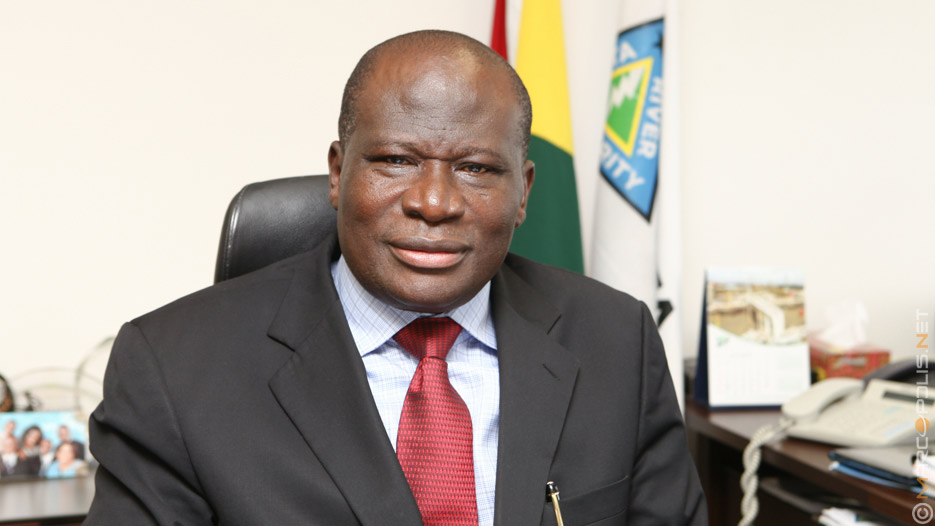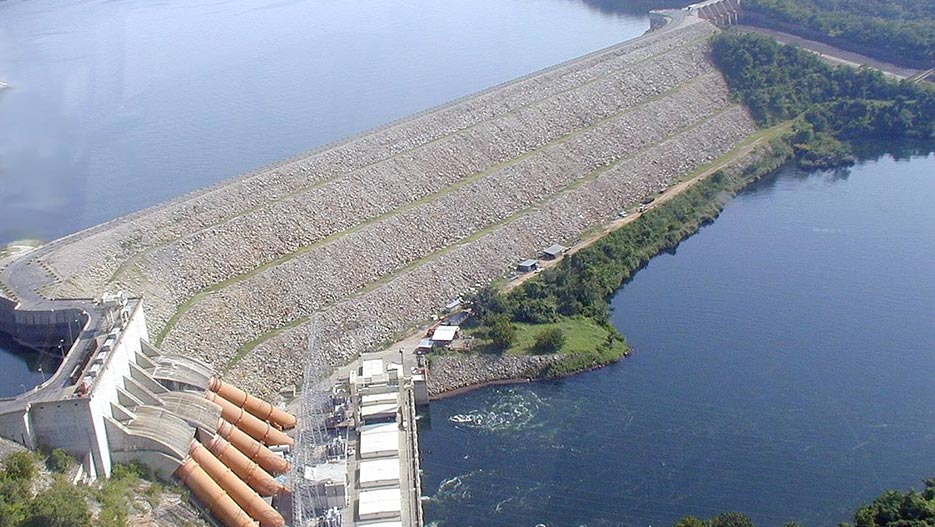VRA: “Many IPPs Are Interested to Enter the Power Sector in Ghana”
“For the first time many IPPs are interested in coming into the power sector in Ghana. They are coming to complement whatever we are trying to do.”
Interview with Isaac Kirk Koffi, Chief Executive of Volta River Authority (VRA)

What is your evaluation of the energy sector in Ghana? What are the recent developments, specifically with regards to the natural gas supply for the Volta River Authority (VRA) plants?
A lot has happened in Ghana since we last spoke two years ago. On the positive side, since then we’ve had our own gas from our own gas field from the FPSO Kwame Nkrumah, and Ghana Gas supplies gas to our power plants in Takoradi. It’s been quite reliable powering our four gas turbines in Takoradi. There have been a few challenges, but on the average it’s been good. And that reduces our cost of generation, and makes our unit’s thermal operations more reliable. On the negative side, the current power crisis is a challenge we’re facing. The power crisis results from a number of causes. One is the growth in the demand of electricity. What is the average rate of electricity growth in Africa? It’s 3%. We are recording double digits: 11-12%. And that is very high for any developing or lower-middle income country to manage. On top of that, our main source of generation is hydroelectricity. We have a big Akosombo plant with hydro facility of over 1,000 megawatts, and we haven’t had good inflow for the past three years. The inflow into the lake has been very low. So today, we’re just doing about 50% of our hydro generation.
So you’re having an increase in demand and a reduction in hydro generation. Unfortunately, we haven’t been able to add on that much thermal generation over the past two years. So this contributes to the challenge we find ourselves in today. Gas supply from Nigeria has also been very erratic, and that has also contributed partly to our inability to generate fully from our thermal plant. But the good news is that, going forward, because of the potential other investors see in Ghana, for the first time many IPP companies are interested in coming into the power sector in Ghana. We don’t see it as a competition. They are coming to complement whatever we are trying to do. Volta River Authority is partnering with some of them, coming up with JV arrangements to help us meet the fast-growing demand, and then there are others who are also coming as IPP. There are quite a number of IPPs who are in advanced stages of establishing themselves in Ghana. Soon, we should have far more generation in this country than we need, at which point we’ll become a net exporter of electricity. The Ghanaian people shouldn’t care who supplies the electricity, so long as it’s reliable and affordable, and that’s what we are all trying to work out. And for all the IPP coming in, they are also trying to collaborate with Volta River Authority, because we are already the major player in this sector. They are either trying to sign on some shared service agreement, or an agreement to give them land near some of our facilities to facilitate their quick entry into the market.
Very soon we’re going to have far more than sufficient power generation in our country. And our plan is to then send some of this surplus power to other countries.
These are things we are doing to make sure that the challenge we face today, which we think is merely short-term, will be gone and gone forever. We’ve had this crisis before. We had it in 1983, 1984, 1997, 2006, 2007. We’ve had this crisis a number of times. But why does it keep repeating itself? Every time we’ve had this crisis, it’s because the water level in the hydro dam Akosombo is low. But going forward, our overdependence on hydro is going to be removed, if we have enough thermal generation. Luckily, we have gas supplies from our gas field, and then hydro is just going to compliment whatever we are doing. So that is the focus and drive of the government, and which we are trying to enforce.
So the way forward in tackling any future challenges is international partnerships. What are some of the projects in the pipeline?
Some of the projects we have taken on ourselves. That’s our strategy. The IPPs are going to come, but they might come on their own terms, so we are putting on projects according to our own plans. Right now, there’s a 300 megawatt thermal plant being constructed. Hopefully, by September that plant should be running 220 megawatts. We’ve already begun plans to convert that plant into a combined-cycle, improving it from 220 to 330 megawatts. We have a simple-cycle plant in Tema, and an adjacent plant which belongs to an IPP, CENIT. We’ve already started a collaboration to convert that plant into a combined-cycle, adding on another 100 megawatts. We’re currently building a 39 megawatts plant in Tema, which will also be finished within the next two or three months. There is a T4 contract, which is for one 80 megawatts plant. We just awarded a contract that we hope will start construction by early next year. Some of these things take about two years. Besides these, we’ve also signed a JV with Globalec, a UK company already present next door in Ivory Coast, to build a 400 megawatts plant in Takoradi. We are providing the land as our equity, and providing a shared service in Takoradi for them. We’ve also signed a JV with EDF, one of the biggest players in the electricity market in Europe. We’ve signed a joint-venture arrangement with them to help us, in exchange for land in Takoradi.
The goal of these partnerships is to learn from them as well, since they are already players in this market. So that’s our strategy. But besides what we are doing, there are a number of IPPs coming in. I’m sure you might have heard of the G1000. We’ve also given them land adjacent to our plant in Takoradi. They want some shared service from us. Besides that, there’s Amandi, an Israeli company already advanced in the process of constructing a 330 megawatt plant. There are quite a number of these IPPs. There are so many of them, and they will keep on coming. And why is everybody coming? They’re coming because they can see that Ghana is the emerging economy in the developing world and in Africa. So all of them are coming and they all want to partner with us. Previously, it was unclear if we were going to have a sufficient source of fuel to power all these plants. But today, we have gas coming from our Jubilee field. We also have extra gas which is going to come from the Sankofa field. These are ongoing developments. So the experts in all these areas can see something happening down the line, where we’re going to get a lot more gas in this country, which means they can come and build the plants without the risk of a fuel shortage. We are also looking at fuel supply security, and we’ve also started talking to a company called Quantum to supply LNG, liquefied natural gas, as a supplement to the pipeline gas. We think this LNG, along with acting as a supplement, will give us the supply security we are looking for.

So with all these arrangements on the ground, you can see that very soon we’re going to have far more than sufficient power generation in our country. And our plan is to then send some of this surplus power to other countries, and we’ve already started serious talks with them about this. Our counterparts in the Ghana Grid Company have also begun a massive infrastructure extension, so that when the surplus power is available, it can then be transported out. But, of course, with this power, we would also then unearth some of the potential in this country, which has been dormant. We have a large aluminium reserve. We have a lot of mining industry, which has been hindered by the lack of sufficient electricity. The increase in power generation will allow for a quicker acceleration in the country’s economic development.
With regards to renewables, the government’s policy has been to make sure that 10% of our portfolio is renewable. We’re engaged in various studies on renewables, and we’re negotiating with a company to provide 100 to 150 megawatts of wind power. We’ve also done 2.5 megawatts of solar, and we’re getting funding for the German government. Many IPPs are also interested in coming into the sector via renewables, and we’ve given them free assistance and support.
What is your short-term strategy or vision for Volta River Authority? When we meet again in two years, where would you like to see your company?
In two years, we still want to be the biggest player in this country. Our vision is to be setting the standard of excellence in the sector, but we want to go beyond that. We always say that we want to power the economy. We can see Volta River Authority playing a dominant role as the major energy utility in this country, producing sufficient generation for the people of Ghana, as well as playing a bigger role in the sub-region (Togo, Benin, Burkina Faso) through the export of surplus power. We want to be the dependable utility that can supply their energy needs.
Is there anything else you would like to talk about, perhaps your CSR activities or social development?
Because we started as a hydro company, we’ve had a lot of corporate social responsibilities. We had a boat which used to go up north to treat people along the shores. We provide lake transport to the north. We also provide a lot of medical services. When the Akosombo Dam was built in the ’60s, we had to resettle people in 52 communities. When the Kpong Dam was built, we had to resettle people in six communities. So we have all these communities that we take care of in a way, providing some amenities, like schools and medical facilities. We have what we call the Volta Resettlement Trust Fund, into which we always make sure we put some money to help the development in all these resettlement villages. There is always a limit to what you can do, especially when you are in crisis like this. But that is an area that we don’t overlook. We also do some work downstream at the estuary, where we make sure to drench the estuary with seawater to kill all the bilharzia.
Do you have any final message?
To the developed community, Ghana is an emerging economy. They should come and see what they can do to help us, because if you look at the horizon, Ghana has tremendous growth ahead of it. The power crisis that we find ourselves in is just temporary. It will be over this year, and when it’s over, it’s never going to come back again. Ghana will be able to develop and take its place as one of the top countries in this world.